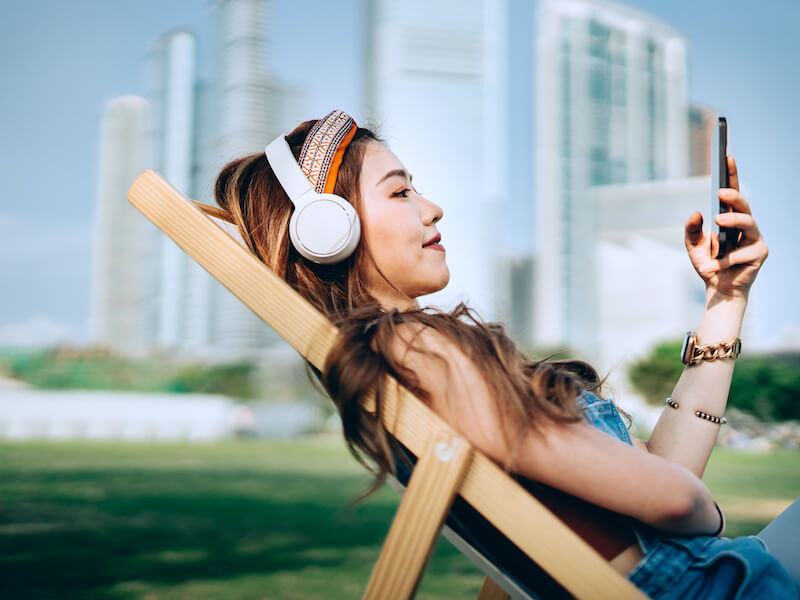
Aiden enjoys music. He listens to Spotify while at work, switches to Pandora while jogging, and he has a playlist for everything: gaming, cooking, gym time, and everything else. Everything in his life has a soundtrack and it’s playing on his headphones. But the very thing that Aiden enjoys, the loud, immersive music, may be contributing to permanent damage to his hearing.
There are ways to enjoy music that are safe for your ears and ways that aren’t so safe. Unfortunately, the majority of us opt for the more hazardous listening choice.
How can hearing loss be the result of listening to music?
Over time, loud noises can lead to deterioration of your hearing abilities. Typically, we think of aging as the primary cause of hearing loss, but the latest research is discovering that hearing loss isn’t an inherent part of getting older but is instead, the result of accumulated noise damage.
Younger ears that are still developing are, as it turns out, more vulnerable to noise-induced damage. And yet, younger adults are more likely to be dismissive of the long-term hazards of high volume. So there’s an epidemic of younger individuals with hearing loss thanks, in part, to high volume headphone use.
Can you enjoy music safely?
Unregulated max volume is clearly the “hazardous” way to enjoy music. But there is a safer way to listen to your tunes, and it typically involves turning down the volume. The general recommendations for safe volumes are:
- For adults: No more than 40 hours of weekly listening on a device and keep the volume below 80dB.
- For teens and young children: 40 hours is still okay but reduce the volume to 75dB.
Forty hours per week translates into about five hours and forty minutes a day. That seems like a lot, but it can go by rather rapidly. Even still, most individuals have a pretty reliable idea of keeping track of time, it’s something we’re taught to do efficiently from a really young age.
Monitoring volume is a little less user-friendly. On most smart devices, computers, and televisions, volume isn’t measured in decibels. It’s calculated on some arbitrary scale. Perhaps it’s 1-100. Or it may be 1-10. You might not have a clue how close to max volume you are or even what max volume on your device is.
How can you listen to music while monitoring your volume?
There are a few non-intrusive, simple ways to determine just how loud the volume on your music actually is, because it’s not very easy for us to conceptualize what 80dB sounds like. Differentiating 75 from, let’s say, 80 decibels is even more puzzling.
That’s why it’s highly recommended you utilize one of numerous cost-free noise monitoring apps. Real-time readouts of the noise around you will be available from both iPhone and Android apps. That way you can monitor the dB level of your music in real-time and make alterations. Or, while listening to music, you can also modify your configurations in your smartphone which will automatically let you know that your volume is too high.
As loud as a garbage disposal
Your garbage disposal or dishwasher is usually about 80 decibels. So, it’s loud, but it’s not too loud. Your ears will start to take damage at volumes above this threshold so it’s an important observation.
So you’ll want to be extra mindful of those times when you’re moving beyond that volume threshold. If you happen to listen to some music beyond 80dB, remember to limit your exposure. Maybe limit loud listening to a song instead of an album.
Listening to music at a higher volume can and will cause you to have hearing problems over the long term. You can develop tinnitus and hearing loss. Your decision making will be more educated the more aware you are of when you’re entering the danger zone. And hopefully, those decisions lean towards safer listening.
Still have questions about keeping your ears safe? Call us to go over more options.